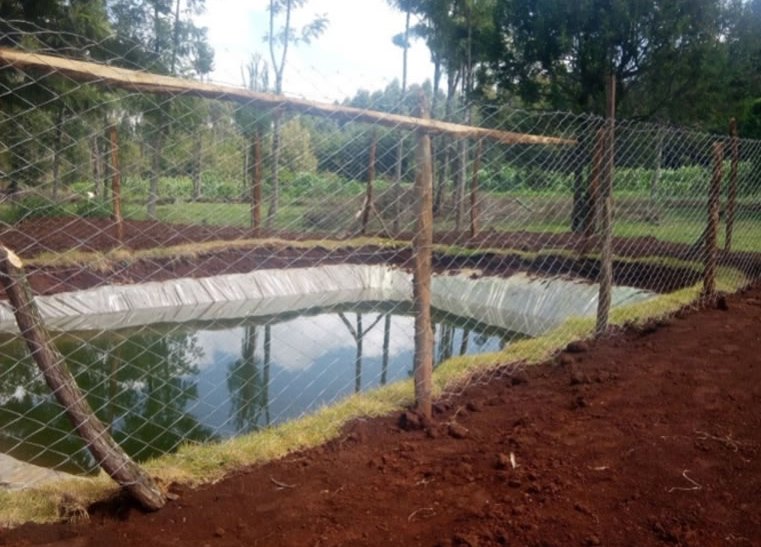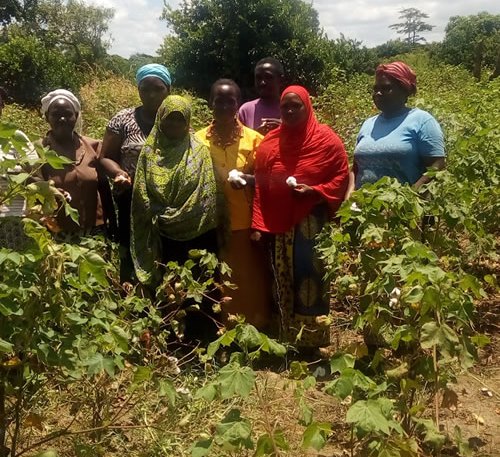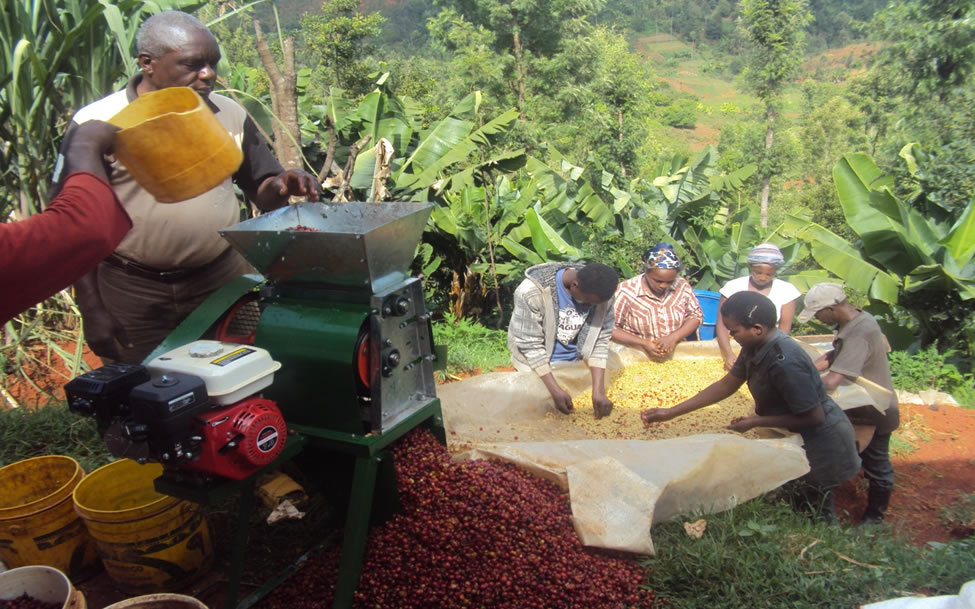Maasai Land Value Enhancement Project (MALVE)
Project Goal
To enable the Maasai people of Kajiado County skilfully manage their Natural Resources (Land, Wildlife, Water) through implementing drought mitigation measures, increasing productivity per square unit of land by 100% enhancing land value thereby reducing temptation to sell land and keep the resource for current and future generation, 5,000 families in 5 Counties improve family assets by 200% within 4 years.
Objectives
Objective 1
To provide skills to community leaders of Kajiado Maasai in the area of economic use of land and related natural resources for peoples economic development at County, village and family levels.
Objective 2
To establish learning cases depicting water harvesting and management skills at village level for human’s livestock, wildlife and reafforestation in 5 Group Ranches.
Objective 3
To raise incomes from livestock sales by 100% thorough economic marketing of live animals and meat support 5,000 Households within 4 years.
Objective 4
To provide practical training to 25 Ranch members at 5 per Ranch on the subject of Sustainable Wildlife Management, Biodiversity and Ecotourism.
Objective 5
To provide practical training and exposure to 5 Ranches in setting up and running crop based enterprises as alternatives to livestock through setting up 5 irrigation and dryland training farms.
Objective 6
To develop awareness among the communities leaders and Government regarding the high level of Natural Resources, dangers of environmental degradation and loss of land as a livelihood source for the Maasai Community.
Geographical Area of Coverage
Maasai Land Value Enhancement (MALVE) Project is a project being implemented in Kajiado County.
The group ranches targeted under MALVE project are:-
- Olgulului group ranch in Amboseli region
- Rombo group ranch in Loitoktok
- Shompole group ranch in Magadi region
Number of Beneficiaries
The project is targeting 5,000 families in the 3 Ranches.
Partners Involved
- GLS Germany
- County Government
- Community
Mangoes From Above Project (MFA)
MFA phase IV is a project that is being implemented in 4 counties namely Taita taveta, Nyandarua, Laikipia and Kirinyaga. The goal of the project is to increase the income levels of 600 adult farmers and 400 youth by 200% through value addition, increased market linkages, increased acquisition of income generating assets and investments within 4 Counties in Kenya in 3 years.
The project is focusing on value addition, local market access for Organic products cow Milk, Camel milk, Honey, Coffee, banana and agro-minerals.
Partners invoved include Bread for the World who is the project funding partner, County Governments and National Government.
Land Slides, Siltation Control and Reforestation (LASCOR II) Project

Project Overview
Watershed ecosystems are key natural wealth for economic growth, ecological integrity and other hydrological services. Watersheds play a crucial role in the delivery of many ecosystem services (ES). The interventions in the LASCOR Project are aimed at improving the vegetation cover in the Thika –Chania sub-watershed which hosts the two dams that feed Nairobi City and its enviros with water. These are aimed at improving the quantity and quality of the water in rivers. The conservation efforts will also contribute to food and income security for the communities in this sub—watershed.
Objectives
- Supporting policies and incentives to support smallholders and food value chains for sustainable watersheds.
- Improved Upper Tana Ecosystem that supports livelihood and economic development.
- Development of Knowledge management and learning systems of beneficiaries- 4,500
Partners involved
- The Nature Conservancy,
- IFAD
- County Governments
- National Government
V4CP- Voice for Change Partnership Project
Post-harvest losses occur between harvest and the moment of human consumption. SACDEP- Kenya in partnership with SNV (Netherlands Development Organization) in Collaboration with Consumer Unity Trust Society (CUTS) and Society of Crop Agribusiness Advisors (SOCAA) is implementing Voice for Charge Partnership (V4CP) Project since December 2017. Under thematic area on Food Nutrition and Security. The project is focusing on FS&FLR in Murang’a, Nyandarua, Laikipia and Nakuru Counties in Milk, Irish Potatoes, Kale and Cabbage value chains. By collaborating with national and international partners like International Food Policy and Research Institute (IFPRI), different levels of Government like Kenya Dairy Board (KDB), Horticulture Development Directorate (HCD), and the private sector. SACDEP-Kenya contributes to improving the ‘enabling environment’. Guaranteeing that community champions have a greater voice in issues such as policy creation and implementation or better provision of services, ensures that the interests of the communities they represent are better served.
The objectives of the V4CP are to contribute to food loss reduction through;
- Mobilizing and training community champions to lobby and advocate for food loss by effectively engaging their respective County government in development of county intergraded development plan.
- Developing and sharing on advocacy plan on reducing post-harvest losses with the county leadership and community champions.
Supporting the implementation of food loss reduction strategies to be undertaken by the community through their community champion’s participation in public hearing. - Influence agenda setting by stimulating collaboration among community champions other CSOs, private sector and other players.
In partnership with SNV Netherlands Development Organization and other CSOs, we intend to mitigate against the increasing food losses in the four Counties through; - Documenting the available information on food loss in the four value Chains i.e. Milk, Kale, Cabbage and Irish potatoes.
- Sharing the collected information with County Leadership and Community Champions to equip them with lobbying material to the County and National governments. Carrying out training plans on food loss reduction to the community champions.
Lamu Organic Cotton Project

SACDEP Kenya have been building the capacities of communities in north coast region of Kenya under the flagship of LAMU ORGANIC COTTON PROJECT. The project is implemented by SACDEP Kenya and coast communities in Lamu and Malindi regions. Through funding from ILD /BMZ and KLJB a Rural youth organization from Germany, the project has been under implementation for the last 5 years reaching directly to over 800 and indirectly to over 2,400 adult farmers and directly to 300 youths and indirectly to over 900 youth.
The project is implemented in two Counties namely Kilifi and Lamu Counties. In Kilifi the project is implemented in Malindi and Magarini division while in Lamu the project is in Witu, Mpeketoni, Mkunubi and in Hindi Divisions.
The overall project goal is to build capacities of the coast communities through provision of knowledge and appropriate skills for improved production of common crops in the region mainly Cotton, Simsim fruits and Nuts. The project endeavor to establish a feasible farming enterprise to contribute to increase in food, nutrition and agro-income level/security.
Youth Self-employment is a key focus and addressed by the project through training the youth on value addition and marketing of organic products. This has helped engaging the youth in productive activities and contribute to the economy of their respective regions.
The project in effort to promote access to affordable credit has designed a saving and credit model referred as Bank Without Walls(BWWs) which provide structure for saving, borrowing and investment for rural communities far from town where formal financial are not available. Through access to credit, the communities are able to financially support their farming enterprises, initiate business for more incomes hence improve their living conditions.
Guided by Sustainable agriculture principles and practices, the project has been promoting awareness on environmental conservation and adaptation by supporting the communities in Coast region on re-afforestation of public sites and wetlands, establishment of woodlots and Orchards for households use, agro forestry and installation of wood energy conservation stoves in schools and for domestic use to reduce excessive use of wood.
Youth Economic and Social Empowerment in the Coast Project – YES-ECO
Kilifi County through funding from TUDOR TRUST from UK. The project has been under implementation for the last 13 years reaching directly to 1326 adult farmers and 7956 indirect adult farmers, the projects has also reached to 2556 direct youths and 7695 indirect youths.
Implementation of the project has been taking place in Kilifi County (Kilifi south sub-county, Kilifi north sub-county, Ganze sub-county, Malindi sub-county and Magarini sub-county).
The overall goal being to build capacities to the youth and adult farmers in Kilifi County through provision of knowledge and appropriate skills on production of small livestock and crop production mainly fruits and nuts, value addition and marketing contributing to increase in food production, improve on nutrition and income levels.
Youth Self-employment is a key focus and addressed by the project through training the youth on value addition and marketing of fruits, nuts and livestock. This has helped engaging the youth in productive activities and contributes to the economy of Coast region.
To improve on access to credit, saving and credit culture by the name BWW (Banking Without Wall) was established to the communities with components of saving, borrowing and investments to financially support their farming enterprises, initiate business for more incomes hence improve their living conditions.














